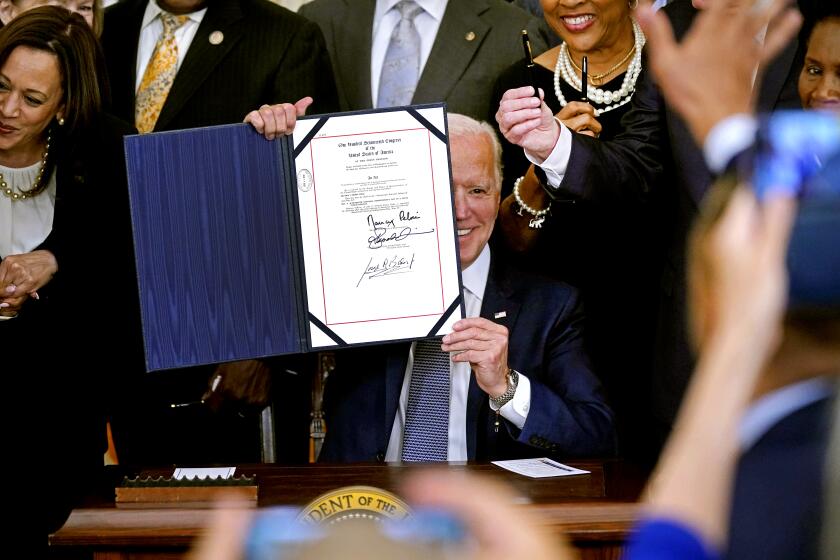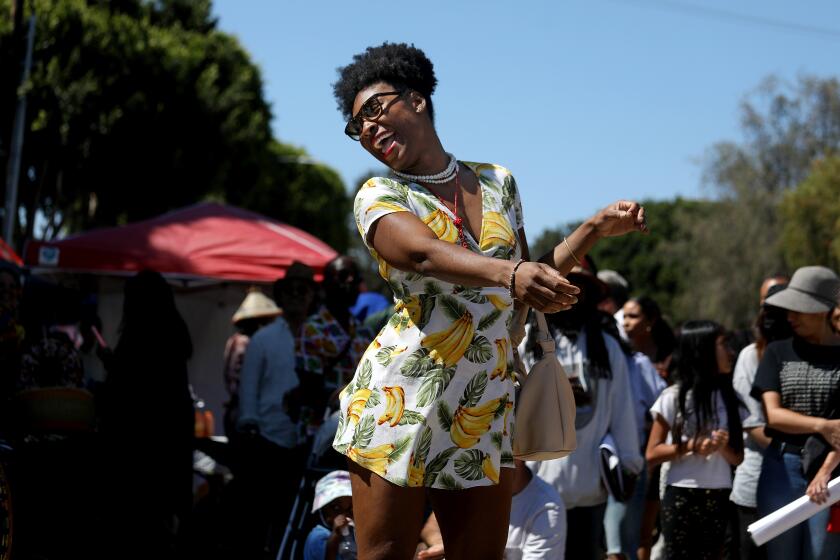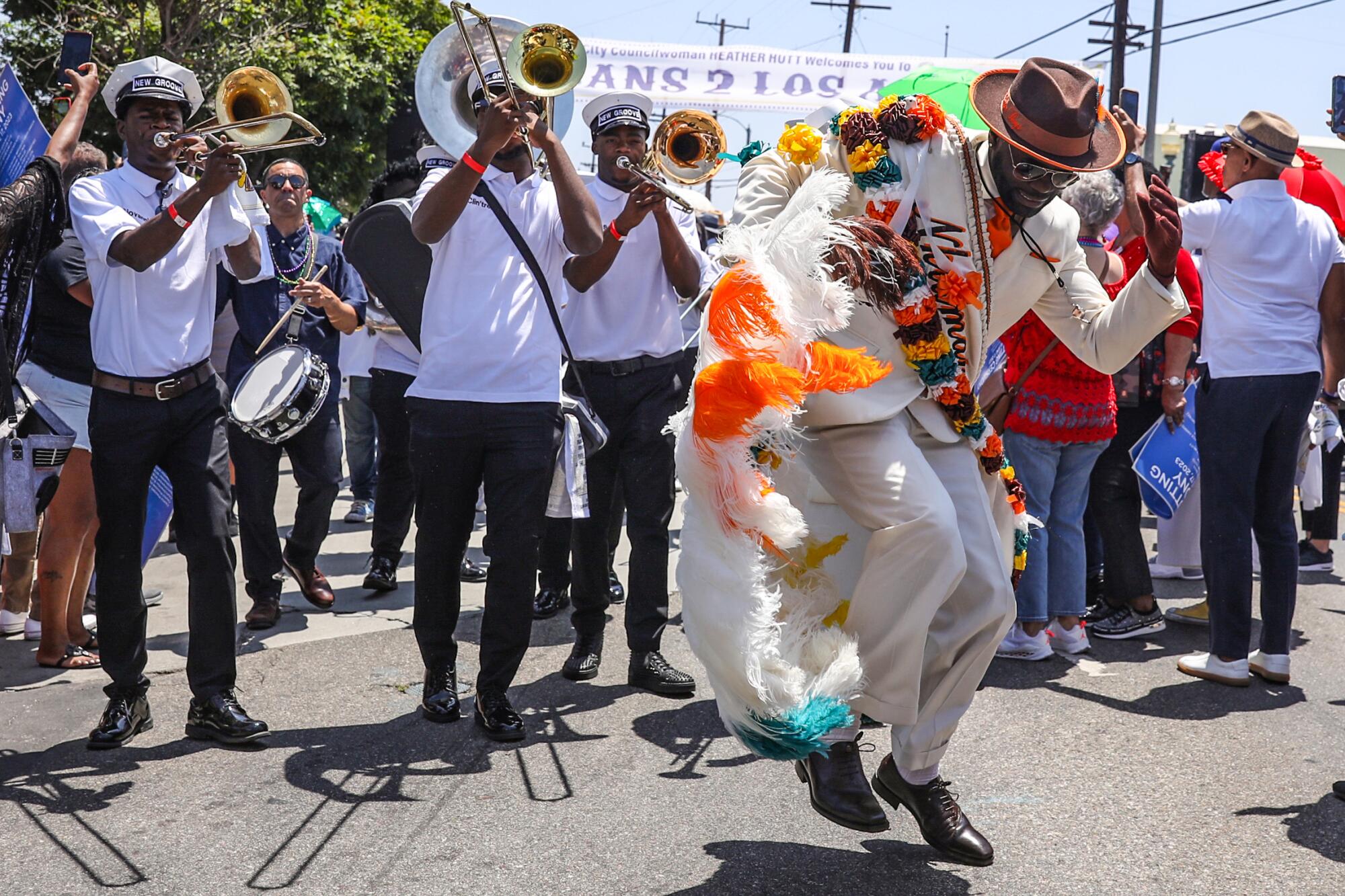
- Share via
Not long after the murder of George Floyd and the start of the racial reckoning, which has since predictably fizzled, I started collecting T-shirts with pithy sayings about Black power. I now have a drawer full of them.
My favorite, by far, is emblazoned with a pair of dark-brown fists breaking out of handcuffs and the words “Free-ish Since 1865.” That’s the year — on June 19 or Juneteenth — when enslaved Black people in Galveston, Texas, were finally told of their freedom, more than two years after the Emancipation Proclamation had been issued.
Wearing this particular T-shirt always serves as a reminder that true freedom isn’t just about escaping physical bondage. It’s about what happens after that, about not being held captive to a narrative about you that was made up by someone else.
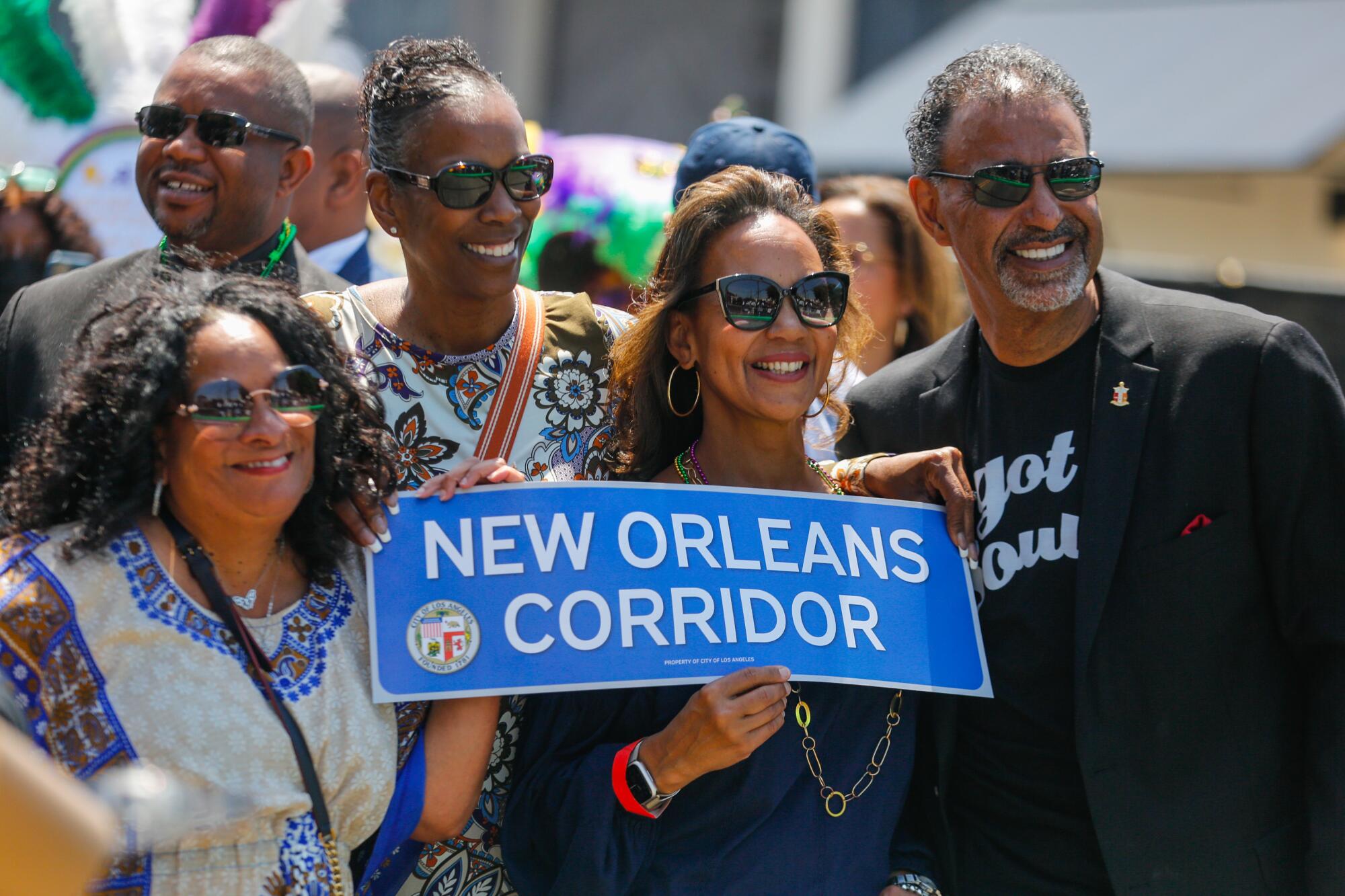
This is something I suspect many Americans can understand. Women who courageously tell their stories of rape and violence in a courtroom, for example, only to be characterized by craven defense attorneys as being complicit in their own assault. Or transgender people and drag queens, who far-right instigators have conveniently conflated and targeted with baseless fear-mongering over gender identity and expression.
Indeed, being free-ish is about as American as apple pie. But for Black people, it’s particularly insidious.
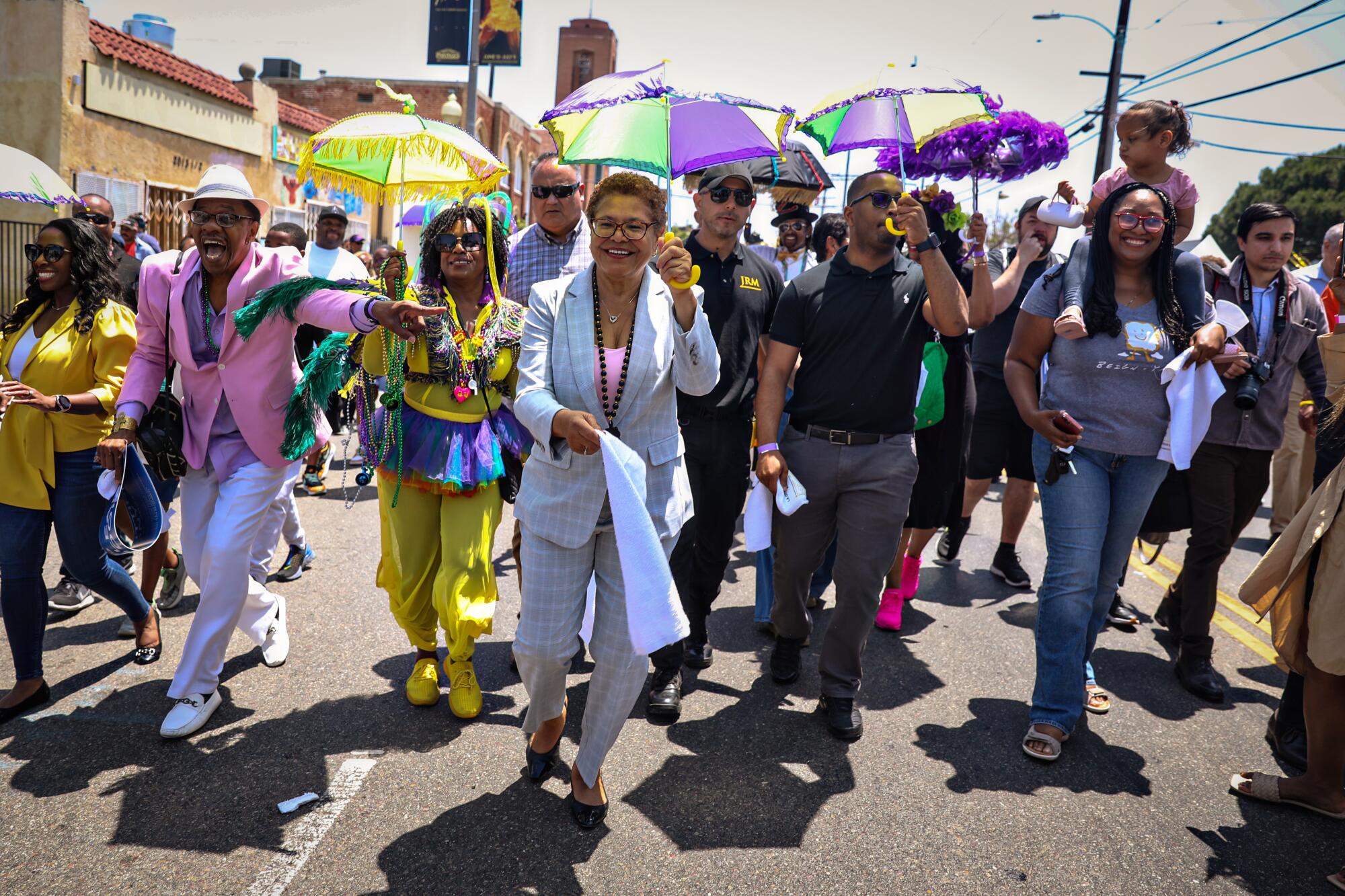
Not only are we defined by others’ often negative narratives, but many of us don’t know enough of the truth about ourselves and our collective history to effectively break out of that captivity — even in our own minds.
Juneteenth has always felt like one of the last corners of Black life untouched by mass consumerism. But now it’s open to all Americans. I’m worried.
I was ruminating about all of this on Saturday, as I listened to L.A. City Councilmember Heather Hutt and Mayor Karen Bass take turns behind a microphone to talk about the significance of the city’s newly christened New Orleans Corridor.
Roughly a mile in length, it runs along Jefferson Boulevard between Holy Name of Jesus Catholic Church and Harold & Belle’s restaurant, in historically Black South Los Angeles.
“People came here and developed roots,” Bass told the hundreds of Angelenos who had come to stand in the sun, “and shaped the city of Los Angeles.”
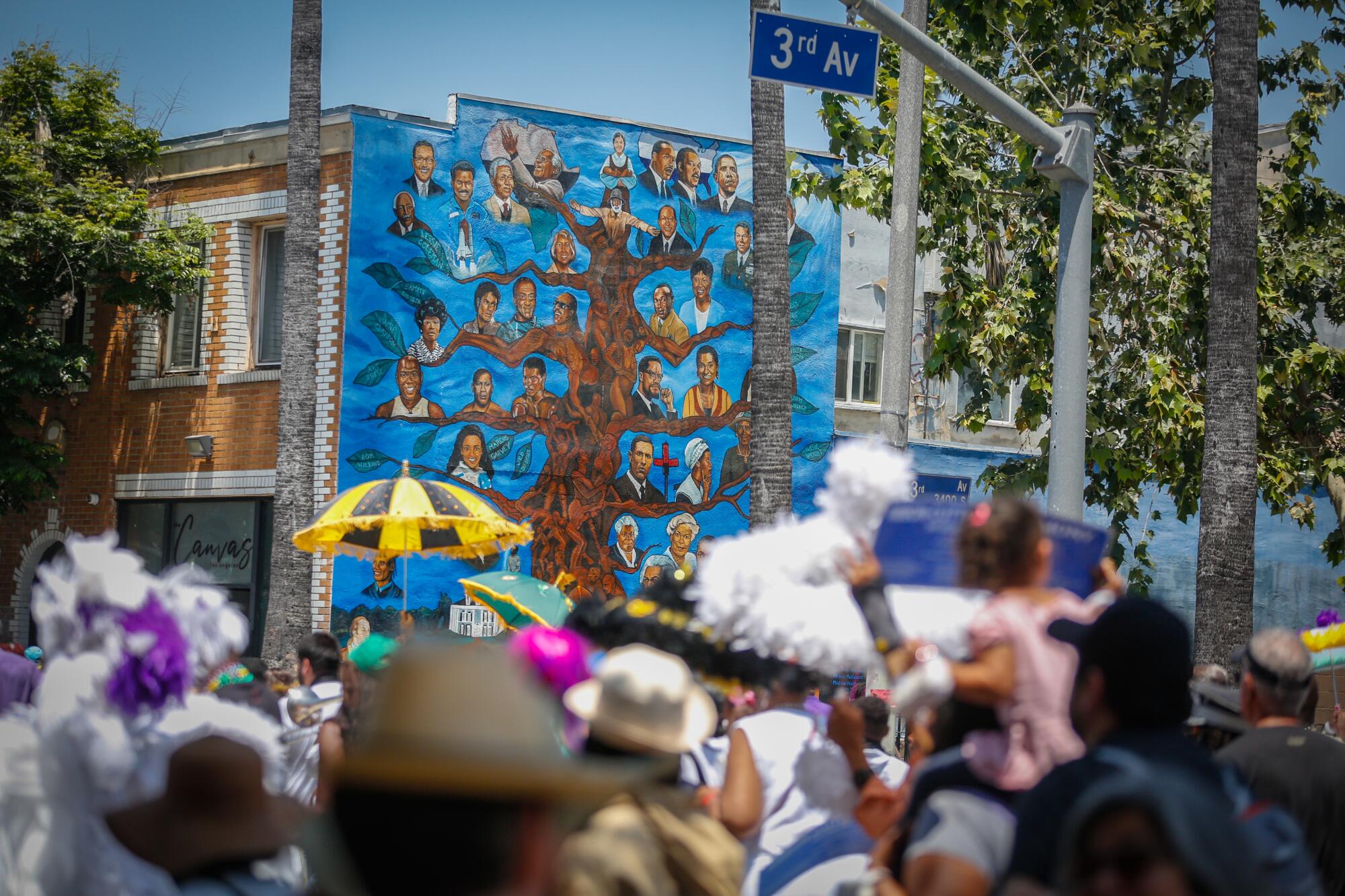
Then a brass band piped up, and she, Hutt and New Orleans Mayor LaToya Cantrell joined a slow-moving second line parade fit for the French Quarter.
Most of the time, events like this are little more than performative photo ops. Politicians give speeches, cut ribbons, pose and smile as their constituents and a few well-placed stakeholders applaud appreciatively, and TV cameras roll.
But these aren’t most times.
In the last three years, dozens of states have introduced bills and enacted policies restricting what can be taught in classrooms about race, systemic racism and American history. This has led to incendiary rhetoric over what too many people think is critical race theory and the books of a disproportionate number of Black authors being banned.
Florida Gov. Ron DeSantis, now Republican presidential candidate, is the most determined to wage this culture war, managing to water down Advanced Placement courses on Black history. But not to be outdone, Texas Gov. Greg Abbott last week signed a bill that bans diversity, equity and inclusion offices at public colleges and universities.
These states clearly want Black people to remain free-ish.
L.A.’s New Orleans Corridor, on the other hand, is about freedom.
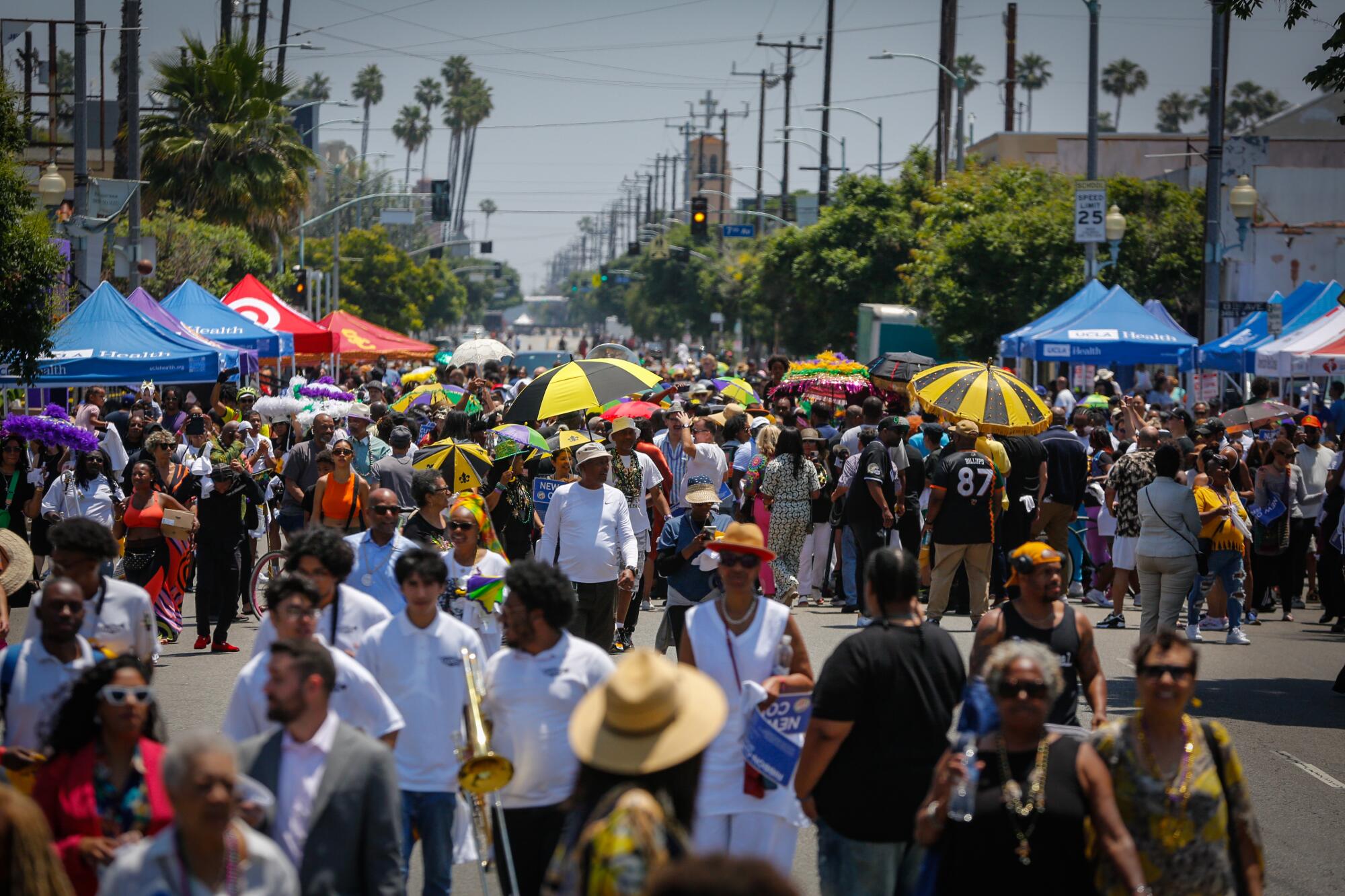
It highlights the history of the millions of Black people who moved westward starting in 1883, when Southern Pacific Railroad finished its transcontinental Sunset Route, connecting New Orleans to California. The mass migration led to L.A. having the largest Creole community in the country outside Louisiana.
This isn’t a history that’s always taught in schools, particularly if you grew up east of the Mississippi River like I did.
My family is from New Orleans, something I learned only a few years before Hurricane Katrina. But I didn’t learn about the city’s connection to California and Los Angeles, specifically, until I moved here in 2018 and started asking questions after I noticed a whole lot of Black people who looked like my relatives.
But even among Black folks who’ve been Angelenos all of their lives, this history isn’t always known, is overlooked or merely underappreciated.
Here is a sampling of Juneteenth festivities happening in L.A. County this weekend to commemorate “Freedom Day” or “Emancipation Day.”
On Saturday, I couldn’t help but gawk in awe at dozens of older women who resembled my grandmother, with their hint of a reddish skin tone and sprinkle of freckles. Many knew exactly what to do as the first notes of a pair of trombones cut through the air, drowning out the whirring of a helicopter overhead. They closed their eyes, waved their towels back and forth, and swayed all the way down Jefferson Boulevard.
But many others were shaking their heads in amazement. “I didn’t know this was a thing, the L.A. to New Orleans thing,” was something I heard over and over again.
Black history is like that. Passed down, generation to generation to a lucky few.
Even Cantrell, the New Orleans mayor, had a similar story. She grew up in Los Angeles hearing stories of her how her relatives had migrated using the Sunset Route.
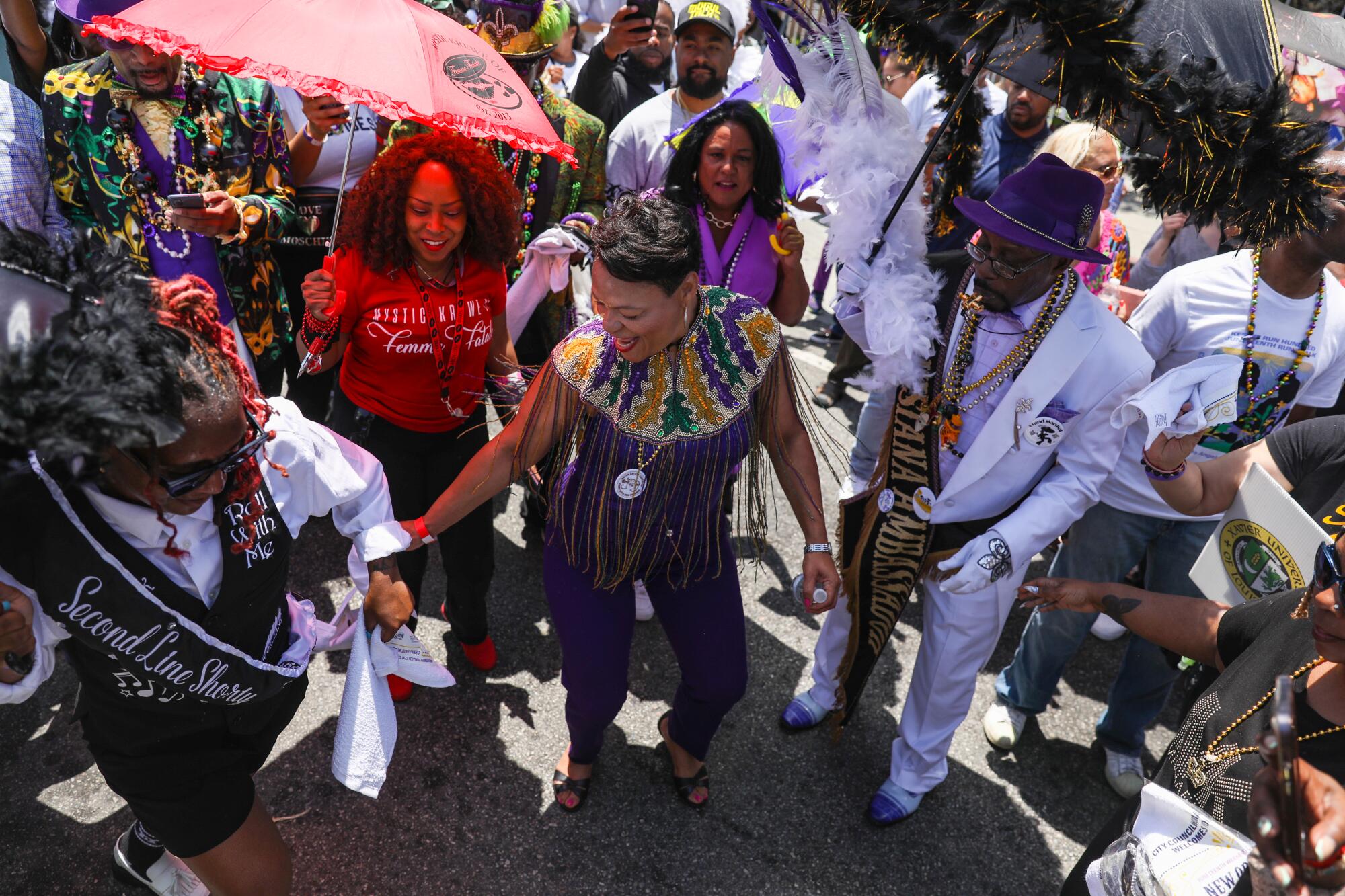
“When I ran for mayor, [people] would say, ‘She’s not from here,’” she told me. “But I understand the influence that New Orleans had on Los Angeles. So I see this as a teachable moment for my people in New Orleans, as well as our people here in Los Angeles.”
Knowing where you come from, knowing your history is a powerful truth. It truly does set you free because it neuters the power of others’ narratives.
“We’re at a time where there’s mass erasure,” Hutt warned the hundreds who had come to her district Saturday as they nodded and murmured in agreement.
“L.A. is standing different in the country,” Bass said. “We don’t try to erase history. We celebrate it. We acknowledge our roots.”
This Juneteenth, I’m still free-ish. But I’m feeling a little closer to being free.
More to Read
Sign up for Essential California
The most important California stories and recommendations in your inbox every morning.
You may occasionally receive promotional content from the Los Angeles Times.
